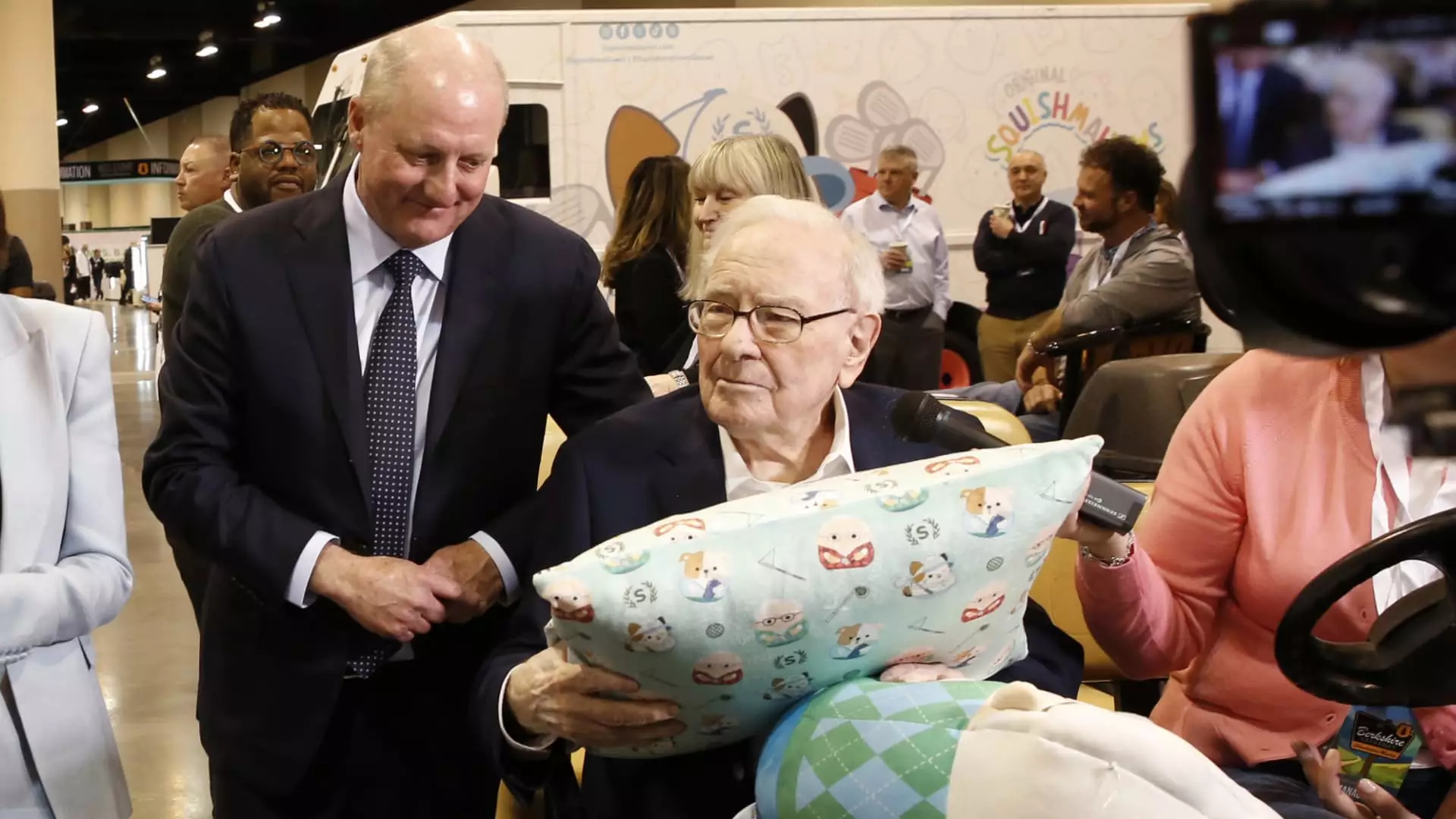In an unexpected turn of events, retail investors showcased their unwavering belief in Berkshire Hathaway by pouring over $24 million into the company’s Class B stock on Monday. This injection of funds serves as a testament to not only the resilience of the company but also a strong endorsement of incoming CEO Greg Abel, signaling a shift away from the charismatic legacy of Warren Buffett. Despite a notable drop in share prices—over 5% on that fateful Monday—traders demonstrated a collective confidence that defies conventional fears surrounding the transition of leadership.
The dramatic surge in net inflows, which exceeded those recorded since 2016, challenges the widely held assumption that mom-and-pop investors would be hesitant to double down on a company historically intertwined with Buffett’s personal brand. The stock’s trajectory in recent years has been extraordinary, and investors are not retreating amid uncertainty. Instead, they appear to be betting on a future that, while less familiar, carries the promise of continuity and stability.
The Buffett Legacy and His Departure
Warren Buffett’s decision to step down from his role as CEO at the end of the year marks a significant moment in the trajectory of Berkshire Hathaway, a cloud of uncertainty looming over the company he built from the ground up. His announcement, delivered to a rapt audience during a large shareholder gathering in Omaha, influenced more than just market confidence; it stirred deep emotional ties to an era that many view as golden.
Buffett has long been revered as the “Oracle of Omaha,” a title cemented by decades of exceptional investing prowess. With Buffets’ pronouncement came a visible and palpable shift among shareholders. Many were bedecked in attire bearing his likeness, hinting at the almost cult-like reverence surrounding his figure. The plush toys sold at the gathering symbolize not just admiration but a deeper connection—one that raises questions about the emotional undercurrents in investing.
Yet amid this admiration, uncertainty revolves around Abel, whose track record of stock-picking has yet to garner the same legendary status. Nevertheless, Buffett seemed enthusiastic about his successor, urging optimism about the future under Abel’s leadership. This act of endorsing Abel could potentially quell the anxious chatter among investors who may still idolize the investment sage.
The Financial Landscape: A Broader Perspective
Despite the day’s disappointing market performance, Berkshire Hathaway’s Class B shares have managed to maintain an impressive 13% growth for the year, far outpacing the S&P 500, which has seen a decline. Such resilience amidst turbulence suggests that retail investors are looking beyond immediate fluctuations, recognizing the long-term value inherent in Berkshire’s diversified portfolio and its substantial cash reserves. With over $330 billion readily accessible, Berkshire has the resources to navigate difficult economic times, further strengthening its status as a defensive stock.
In an environment defined by uncertainties, retail investors seem to interpret Berkshire as a bastion against impending economic crises. The belief is not unfounded: Buffett’s historic propensity for significant buying during market downturns leaves many hoping that his acumen will persist in some form, even if he steps back from the limelight.
Looking Ahead: The Future of Berkshire Under Abel
The real question looms: What will Berkshire Hathaway look like under Greg Abel’s stewardship? The departure from Buffett’s intense public presence could signify a shift in company philosophy and strategy, one that will need to reassure investors used to Buffett’s narrative. Abel is stepping into the role with a challenging task ahead—to carry on Buffett’s legacy while forging a distinctive path that resonates with investors weaned on nostalgia.
Despite skepticism regarding his ability to emulate Buffett’s investment savvy, Abel’s leadership will define the trajectory of the firm moving forward. As the board has decided to keep Buffett in a chairman role, the continuity may bring some comfort. Meanwhile, Abel must strive to cultivate a new narrative for a company steeped in its traditions. The burden of proving one’s mettle under the shadow of Buffett’s monumental legacy will shape the essential elements of this transition.
The convergence of retail zeal, stock market fluctuations, and a palpable leadership transition reaffirms the notion that investing goes beyond mere numbers. Emotions, beliefs, and a sense of community play energy-charged roles in how the market moves. The upcoming months will be critical as investors—and Abel—navigate uncharted waters while holding onto the vestiges of an era led by a veritable investing icon.

